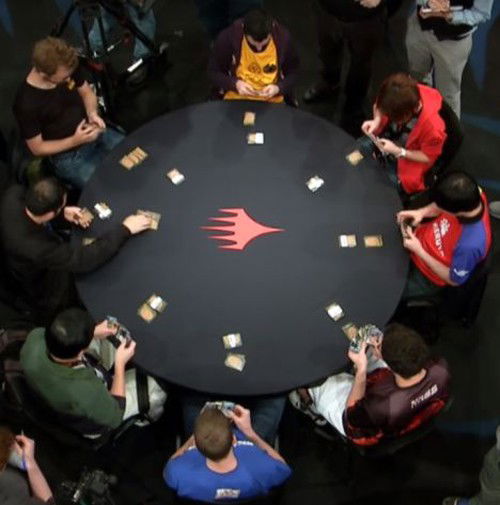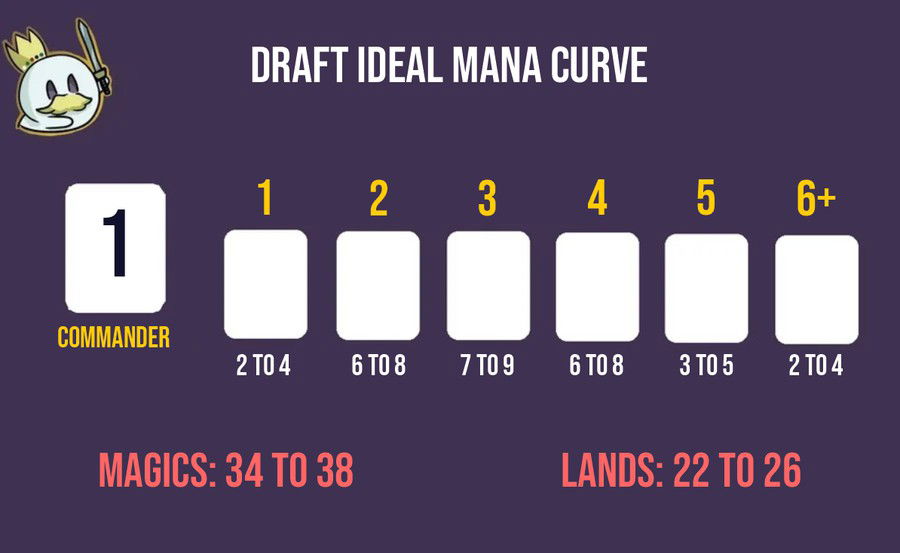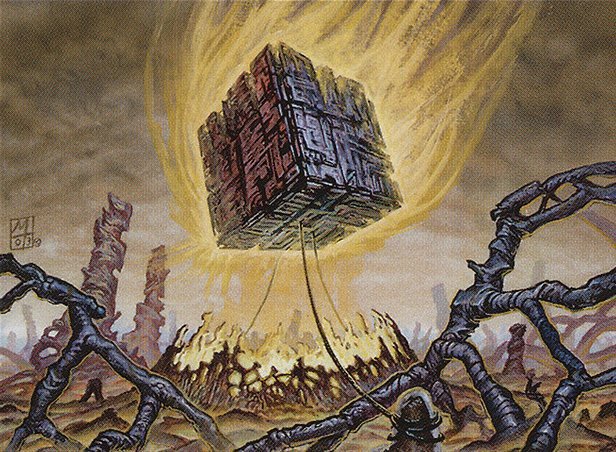In early June, Commander Legends: Battle for Baldur's Gate was released, and in its prerelease event, instead of the traditional Sealed, it was in Draft format. For everyone who had the opportunity to play, it was a wonderful experience, as it had a different way of building decks than usual — and we'll get to that later.
With this Draft in mind, I decided to create a Cube aimed at Pauper Commander, as some were excited about this game mode, and it could be a great opportunity to introduce the Draft format to PDH.
The card list of this cube can be adapted to the traditional Pauper Cube, you only need to remove the cards of uncommon creatures that will be the commanders. The list is updated with the most recent cards, so it may be a novelty in relation to the article by I wrote two years ago.
How to play a Cube?

I'll summarize here what players need to know to play, regarding the number of players, the way to Draft if you don't know, in addition to the game mode and health points.
Number of players
To play this mid-range Draft format, we recommend 4 or 8 players, so it's one or two full tables, but we know that's not always possible.
In practice, from 4 to 8 players it is still possible to Draft and build your decks with a certain variety, with the following layout at the time of the draft: 4 and 5 players, one table, everyone drafts together and then plays. In the case of five players, the match may be longer than usual, but being a casual format, this may not be an issue.
With 6, 7 and 8 players, it is possible to draft all together and split into two tables, with 3 and 3, 3 and 4 and 4 and 4 players, respectively.
Drafting

To draft, each player will receive three booster packs with twenty cards each.
Each of these players will open their booster pack, choose two cards and pass the rest to their left side and take the booster pack from the player next to them.
When you run out of cards, you will open your second booster pack, take two cards and move to the right. In the third booster, you will do the same, but you will pass to the left. Each player will have a total of 60 cards, and will use them to build their deck, adding only the basic lands.
Game Mode
The game mode is a normal game, according to the number of players. The life total is the same as Pauper Commander, 30, and the commander's damage is 16.
If adapting to traditional Pauper, life totals will be 20. Apart from these peculiarities, it will be a traditional multiplayer, the additional Commander tax will be applied to commanders.
Another important thing: the number of rounds must be agreed between the players, considering that to play a Cube everyone knows each other, just like in a casual table. You can play two to three rounds.
Deck Construction
The deck building mode, for this particular format, is different from the traditional Draft. In this one, it is suggested that you build a 60-card deck, and you must choose a commander, following the identity rules, that is, none of your cards can have different symbols from your commander, neither in cost nor in their text.
All the cards you get in the draft can be used to compose your deck, and you can add basic lands to complete your mana base.
You must keep in mind which colors you want to build from the beginning and that, due to the number of cards, you will probably build decks with more than one color. Knowing this, the cards prepared to be commanders are all two or three colors.
Mana Curve
In Commander, the mana curve is not always so important, especially in Draft, where the player cannot fully control the cards they put in their deck. But we can follow some patterns to build a more efficient deck so that you can play toe-to-toe against your opponents.
Choosing cards during your deck will make all the difference, and every choice counts. So choose your play style as soon as possible, and I recommend choosing your Commander as soon as you open your first booster pack, as you will be able to shape your strategy from an early age - since it will dictate the way you play.
An ideal curve, especially for those who are starting in the draft, is the one we can see in the following image:

Assembling your Cube
Pauper Commander'Cube Draft must be assembled differently from other Cubes, as it must consider that there must be utility lands, and also for To help the game develop, it is necessary to have cards with massive effects — although we don't have many among commons, they will be very relevant to the game.
Another important point are the uncommon creatures, which will serve as commanders. They are the key to how the decks work.
If you choose to play in the Pauper format, remove the 60 cards referring to commanders.
Card Lists
The lists follow similar patterns for each card color, but not all of them are completely the same in terms of mana cost and card type within that color compared to other colors.
The lists are separated by color, each with the same number, 72 cards.
Cards that have their CMC of only one color, but have some ability or any other component of another color that is in their text, will be within the multicolored cards.
Assembling the Boosters
The assembly of Boosters to play this format is simple, and the most important point is to use matching colors sleeves, to stay in the same pattern and not damage your cards when playing or shuffling.
With a total of 600 cards, it will be possible to assemble thirty booster packs with twenty cards in each one. To assemble them, you must follow a few steps:
1st: Take the 60 cards of uncommon creatures that will be the commanders, shuffle and, without looking, separate into thirty piles, each of them with two cards. Place them face down.
2nd: Take the 60 land cards and do the same.
3rd: Shuffle the colorless, multicolored and artifact cards. Place four of their cards in each pile.
4th: Shuffle all the remaining 360 cards that refer to the five colors, shuffle them all together and distribute 12 cards in the thirty piles, completing the 20 for each Booster.
If you have small plastics, like the ones retailers use to place cards from an order to a customer, use them to separate them into Boosters, then store in a large box. If possible, do this process beforehand, as it takes some time.
Conclusion
I strongly suggest you check out my article from two years ago on Pauper Cube. If you're going to play Pauper, this list is bigger and updated.
For Pauper Commander, you can use the deck building tips we have here, and use the formula from the Pauper Cube article. You can also use our land-calculator
to help you know how many lands of each you will need.
Pauper Commander is a lot of fun, due to its affordable format proposal.
If you're going to assemble this cube, don't just think it's for a single purpose because you can play Pauper Cube too, just taking the 60 uncommon cards that will be the commanders.
I hope you have as much fun while trying it out in your playgroup as I had with mine!















— Comentarios 0
, Reacciones 1
Se el primero en comentar